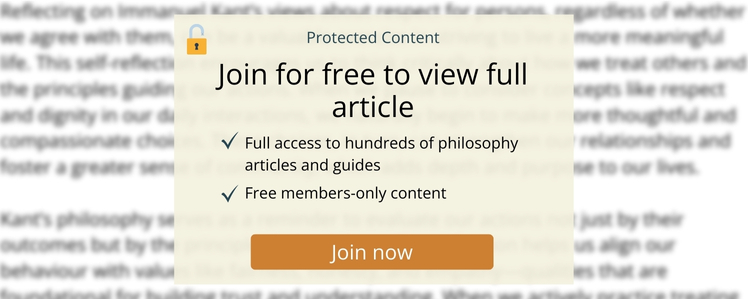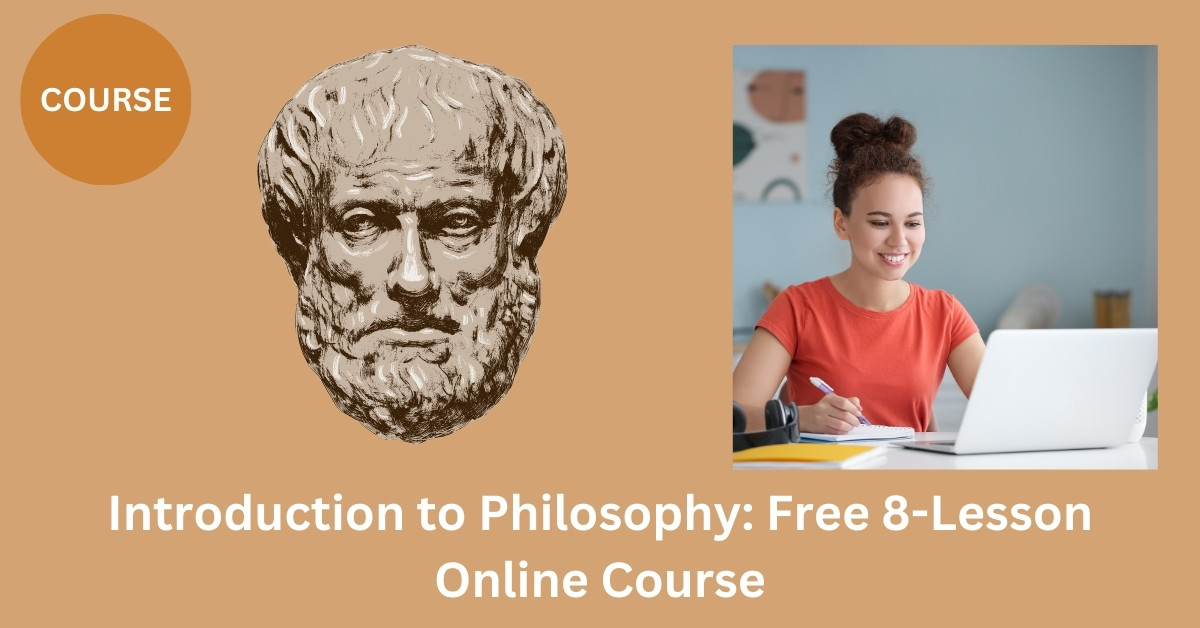Philosophy often inspires individuals to seek a more meaningful life, yet one key concept in John Rawls’ philosophy, known as reflective equilibrium, is not always well understood. This concept plays a crucial role in Rawls’ approach to ethical reasoning and significantly impacts how we apply philosophy to enrich our lives. This article will examine John Rawls’ philosophy, shed light on the idea of reflective equilibrium, and discuss its importance in the quest for a deeper, more meaningful existence.
Key features of John Rawls’ philosophy
John Rawls was a prominent philosopher known for his ideas on justice and fairness. His most influential work, A Theory of Justice, introduced the concept of “justice as fairness.” At the core of his philosophy is the idea that a just society is one where basic rights and opportunities are distributed equally, and inequalities are only allowed if they benefit the least advantaged members of society.
To explain this, Rawls proposed the “original position” and the “veil of ignorance.” The original position is a thought experiment where individuals come together to decide on the rules of society. However, they do so under the veil of ignorance, meaning they don’t know their own place in society—whether they will be rich or poor, powerful or marginalized. This ensures that the decisions they make will be fair and unbiased.
Rawls also highlighted two key principles of justice. The first is equal basic liberties for all, such as freedom of speech and the right to vote. The second is the difference principle, which allows social and economic inequalities only if they improve conditions for those who are worst off. His philosophy has had a significant impact on political theory and continues to shape discussions about fairness and ethics today.
What is a reflective equilibrium?
John Rawls’s concept of reflective equilibrium refers to a method of arriving at moral or philosophical principles through careful and consistent reflection. It involves balancing our intuitions about specific situations or cases with broader principles or theories. The aim is to create harmony between these two levels of thinking, ensuring they support one another.
To achieve reflective equilibrium, one begins by considering their initial judgments about particular cases—these are often gut feelings or intuitive responses. At the same time, one examines the general principles they believe in, such as ideas about fairness, justice, or moral rules. If these two levels of thought clash, adjustments are made. This could involve revising specific judgments, altering broader principles, or both, until consistency is reached.
Rawls emphasized that reflective equilibrium isn’t about finding a single fixed truth. Instead, it’s a process of ongoing refinement, where one’s beliefs evolve through thoughtful consideration. By revisiting and examining these beliefs, people work towards a state where their overall moral framework fits together and feels coherent. It is a method not of imposing ideas, but of aligning and reconciling them.
This example helps to demonstrate this philosophical perspective. Imagine a situation where a group of people is tasked with creating fair rules for a society, but they do so without knowing their own place within that society. They don’t know their gender, race, wealth, or status, which means they must set the rules without bias. One of the participants might propose that everyone should have equal access to education, as this would benefit all regardless of their circumstances. Another might suggest that wealth should be distributed in a way that helps improve the position of the least advantaged members of society. Through a process of revising and adjusting these ideas, the group reaches a set of principles for fairness that balances what they believe is just, while also aligning their beliefs with the rules. This process showcases how philosophical thinking about justice can take shape.
Challenges to John Rawls’s view about reflective equilibrium
Philosophers object to or reject John Rawls’s concept of reflective equilibrium for several reasons, often questioning its reliability, its potential for bias, and its practical limitations. One common critique is that reflective equilibrium relies heavily on the coherence between our moral intuitions and principles. Critics argue that our intuitions are not always reliable, as they may be shaped by personal biases, cultural norms, and historical circumstances, rather than objective or universal truths. If these intuitions are flawed or inconsistent, building a moral framework around them could lead to equally flawed outcomes.
Another concern is the subjective nature of the reflective equilibrium process. Since it depends on individuals’ reasoning and judgment, two different people may arrive at entirely different conclusions. This subjectivity suggests that reflective equilibrium does not guarantee universally acceptable standards of justice or morality. Instead, it risks reinforcing individual or cultural perspectives, which could lead to relativism rather than objective moral progress.
Additionally, some philosophers criticize reflective equilibrium for its potential to entrench the status quo. They argue that people are likely to use their existing beliefs, shaped by their particular social and historical context, as the foundation for identifying coherence in their moral views. This approach may limit the possibility of radical or innovative thinking that challenges existing structures of inequality or injustice.
Practical limitations are also worth mentioning. Reflective equilibrium requires a significant amount of time, effort, and intellectual consistency to refine one’s moral principles. Critics point out that this level of engagement might be unrealistic for the majority of people, making the approach inaccessible and impractical as a basis for broader societal justice frameworks.
Ultimately, while reflective equilibrium is a significant contribution to philosophical thought, these objections highlight its vulnerabilities. Questions about intuition reliability, subjectivity, cultural bias, and practicality demonstrate why some philosophers believe this concept may not be the best foundation for ethical reasoning or justice. Recognizing these critiques allows for a deeper exploration of alternative models that might address these weaknesses.
Why reflective equilibrium is important to John Rawls’ philosophy
These are some of the main reasons why grasping the concept of reflective equilibrium is crucial to comprehending John Rawls’ philosophy.
- Reflective equilibrium helps clarify moral consistency.
This concept is important because it encourages individuals to align their specific moral judgments with broader moral principles. By seeking a balance between these two, reflective equilibrium ensures that an individual’s ethical stance is coherent and free from contradictions. This process can involve revising one’s initial beliefs or reassessing overarching principles to maintain alignment. It is particularly helpful in analyzing moral dilemmas, as it guides individuals toward positions that are not only practical but also consistent with their deeper values.
- Reflective equilibrium connects theory to practice.
One of the strengths of reflective equilibrium is its ability to bridge abstract philosophical ideas with real-world situations. Philosophical concepts often feel distant or disconnected from everyday life, but this approach seeks to integrate them with personal experiences and societal norms. By doing so, it makes moral theories more relatable and applicable. This connection allows philosophical insights to play a role in addressing pressing ethical concerns, ensuring they are not simply theoretical exercises but tools for practical reasoning.
- Reflective equilibrium encourages an open and dynamic thought process.
Instead of treating morality as fixed or unchangeable, reflective equilibrium views moral understanding as evolving. It reflects the idea that our beliefs and principles can change when confronted with new information or perspectives. This flexibility is key to ongoing moral development, as it acknowledges that ethical reasoning must adapt to new challenges or societal changes. By encouraging an open-ended process of evaluation and adjustment, reflective equilibrium fosters deeper, more thoughtful engagement with moral issues.
Contrasting John Rawls’ philosophy with Derek Parfit’s philosophy
John Rawls’s idea of reflective equilibrium and Derek Parfit’s philosophy both aim to address complex moral and ethical questions, but they approach these questions in distinct ways. Reflective equilibrium, as proposed by Rawls, focuses on achieving coherence between our principles and judgments by actively revising and balancing them until they align. It is a method of refining our moral beliefs through careful consideration and adjustment, ensuring they make sense together and form a consistent ethical framework.
On the other hand, Derek Parfit’s philosophy often engages with metaphysical and ethical questions in a more analytical way, particularly in works like Reasons and Persons. Parfit examines issues like personal identity and the nature of morality by exploring thought experiments and deeply challenging intuitions. While Parfit’s approach also seeks coherence, it tends to emphasize a broader examination of rationality and consequences over the iterative adjustments characteristic of reflective equilibrium.
A key difference between the two lies in methodology. Rawls’s reflective equilibrium is a process-focused approach aimed at finding balance within a specific moral system. Parfit’s work looks more outward, tackling fundamental questions about human connections, identity, and future generations. Where Rawls’s method refines an existing ethical framework, Parfit often tries to reimagine or question fundamental moral assumptions. Both share a dedication to ethical clarity, yet their paths to achieving it highlight the diversity in philosophical thought.
Reflective Equilibrium, John Rawls’ philosophy and the meaning of life
Reflecting on John Rawls’s philosophy and his view about reflective equilibrium can be a profoundly valuable exercise when striving to live a more meaningful life. Regardless of whether you agree with his perspectives, engaging with the concept of reflective equilibrium encourages individuals to thoughtfully examine their beliefs and principles. This process involves critically evaluating how our values align with our actions and how our personal principles fit within broader societal frameworks. Such reflection pushes us to consider not only what we believe but why we believe it, promoting a deeper understanding of our motivations and choices.
Taking time to reflect in this manner can influence how we approach our daily lives. It helps us identify inconsistencies in our values or actions, offering a chance to refine them in ways that promote integrity and authenticity. By evaluating whether our decisions reflect the kind of person we want to be and the life we want to lead, we create a foundation for living with purpose. This process can guide us to make choices that are congruent with our values, resulting in greater personal satisfaction and a clearer sense of fulfilment.
From a practical standpoint, reflecting on ideals, such as those considered by Rawls, equips us to contribute meaningfully to our communities. It fosters empathy, as it requires us to look beyond ourselves and consider perspectives outside our own. When engaging in this reflective practice, we are better able to appreciate and respect the diversity in thought, experience, and needs that exist in the world around us. This outlook encourages collaborative problem-solving, deeper connections with others, and a sense of interdependence—qualities that contribute to a more meaningful and impactful life.
Finally, even if one disagrees with Rawls’s ideas, the act of reflecting on his philosophy can still provide personal growth. It challenges us to step outside our comfort zones, question assumptions, and re-evaluate where our values and actions align or diverge. This introspection not only strengthens our capacity to reason but also helps us adapt and improve. A life lived with consistent reflection and alignment with one’s principles is richer, offering clarity, purpose, and a sense of harmony between what we stand for and how we live.
Further reading
Daniels, N. (1996). Justice and justification: Reflective equilibrium in theory and practice. Cambridge University Press.
Freeman, S. (2007). Rawls. Routledge.
Nagel, T. (1973). Rawls on justice. The Philosophical Review, 82(2), 220–234. https://doi.org/10.2307/2184034
Rawls, J. (1971). A theory of justice. Harvard University Press.
Rawls, J. (1993). Political liberalism. Columbia University Press.
Scanlon, T. M. (2003). Rawls on justification. The Cambridge Companion to Rawls, 139–167.
Talisse, R. B. (2001). On Rawls. Wadsworth Philosophers Series.
Weithman, P. J. (2010). Why political liberalism? On John Rawls’s political turn. Oxford University Press.
Wenar, L. (1995). Political liberalism. Philosophy & Public Affairs, 24(3), 255–275. https://doi.org/10.1111/j.1088-4963.1995.tb00047.x
Williams, A. (1998). Rawls and the priority of liberty. Philosophy & Public Affairs, 27(3), 223–255. https://doi.org/10.1111/j.1088-4964.1998.tb00368.x


